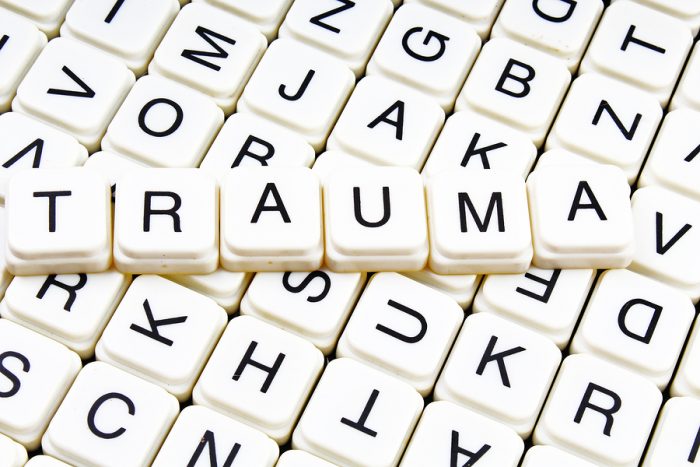When someone experiences trauma, it can affect them for many years and even change the path of their life. Many people aren’t aware of how their trauma has changed them and they develop issues like mental illness or problematic behaviors like substance abuse. Everyone copes with trauma differently but it always has a deep psychological impact that can be seen in a person’s emotional life and behaviors.
Trauma means that someone has lived through an extremely frightening or distressing event that injures their psyche. It can lead to serious challenges in functioning if they are not able to process the trauma and they may have trouble coping with daily life after the event. Many people are able to recover well from trauma but for those without a proper support system or guidance they can end up experiencing long term problems.

A traumatic experience can mean different things but any situation that feels overwhelming and creates a tremendous amount of stress can be a type of trauma. Trauma causes an individual to feel terrified and helpless in a way that damages their mental wellbeing. It is important to be able to recognize the symptoms of trauma in yourself and others so that you can get treatment and recovery.
What Trauma Looks Like
Because the definition of what makes something traumatic can be loose, it is hard for people to recognize when someone has been traumatized. They may think that someone they love is coping with a situation well without realizing that they are actually struggling. Symptoms of trauma can be cognitive, behavioral, psychological and physical.
Cognitive Symptoms of Trauma
- Intrusive and painful thoughts of the event that occur suddenly
- Recurring nightmares
- Visual images of the event that appear in your mind
- Confusion and mood swings
- Feeling disoriented
- Issues with memory and concentration
Behavioral and Psychological Symptoms
- Avoiding places or situations that trigger memories of the event
- Isolation and withdrawal from social activities
- Losing interest in hobbies
- Feelings of fear
- Compulsive behaviors
- Detaching from other people
- Depression and guilt
- Irritability, anger and other mood changes
Physical symptoms
- Jumpy or easily startled
- Lethargy, exhaustion and fatigue
- Muscle pain or spasms
- Changes in sleep or eating patterns such as insomnia or weight changes
- Edginess or alertness; worrying about potential danger
Seeing the Effects of Trauma
People who go through traumatic experiences not only develop a lot of specific symptoms, it can also change their psychological state and lead them to behave differently. They may have developed a mental illness or personality disorder without being aware that their psychology has changed. They may begin to abuse drugs or alcohol because they don’t know how to cope with what they are going through.
Alcoholism and substance abuse are common problems for people that have been through trauma and it is necessary to resolve both issues for them. They may also develop behavioral problems such as having issues maintaining close relationships. They might experience a lot of conflict with others or become so isolated that they avoid having close friendships or intimate relations with other people.
Someone who has been traumatized may also have problems with impulsive behaviors or self-destructive behavior that leads to issues with functioning. They may find it hard to make healthy choices in their lives and will end up struggling with finances, mental and physical health, their social connections, work and other aspects of their wellbeing. They often have a feeling of being damaged and the sense that they can’t manage their life the way that others can.
Recovering from Trauma
In order to minimize the problems that result from trauma and the way that it affects mental health and behavior, it important to reprocess the experience. A traumatic experience is shocking to the system and people often shut down as a reaction because they don’t know how to process their feelings about it. During therapy, people who have been through trauma often must talk about and relive their traumatic experience so they can work through and release the emotions associated with it.
People who have been traumatized often struggle to remember or share their stories because they had such a major impact on them. Sometimes the memories become buried in their subconscious because they are so painful or they may talk about it as if it happened to someone else. Eventually the therapist can help the trauma victim to experience their past in a way that releases negative emotions and brings more meaning to their understanding of it.
If you or someone you love is exhibiting symptoms of trauma then it is necessary for them to get professional treatment. Trauma can be devastating to a person’s mental health and recovering from the effects of trauma will allow the individual to live a healthier and more functional life.




